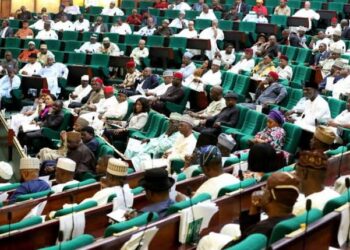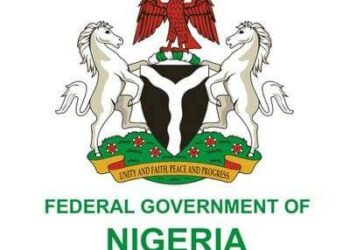The House of Representatives Committee on Finance, has demanded answers from the Nigerian National Petroleum Corporation Limited (NNPCL) on the annual expenditure of about $17.5 billion as crude oil production cost.
The committee also raised questions on the alleged non-remittance of outstanding sum of $278,184,937.72 from the transfer of OML 24 to NNPCL/NEPC in 2019.
According to Nigerian Upstream Petroleum Regulatory Commission (NUPRC) records, OML 24 was transferred to NNPCL/NEPC in 2019 for a Signature Bonus of $309,094,374.72 of which only $30,909,437 has been paid, thereby leaving an outstanding of $278,184,937.72 due to Government from the NNPC/NEPL.
Chairman of the Committee, Hon. James Faleke who expressed concern during an investigative hearing into the cost of crude oil production and its impact on government revenue, alleged that the transfer of the asset reduces the amount of oil revenue accruable to the Federation.
Faleke who frowned at the secrecy in the management of the industry, observed that “from 2014 to 2024 our costs have increased by about $18 million per day or $6.6 billion per annum over 10 years; and this has not led to an increase in either reserves or production. This further implies that for a production of 1 million barrels per day we are incurring costs of $48 million per day or $17.5 billion per annum.”
While demanding for details of the production costs of PSCs and other partnership arrangements or do they form part of the $48.71 given by the FIRS, historical cost of production computations from 2014 till date, Hon. Faleke stressed the need for information bothering on the “status of the $3.3 billion forward contract executed by NNPCL?
Presenting his position on the concerns raised, the NNPCL Group Managing Director, Mele Kyari described the company as one of the most regulated commerical outfit anywhere you can find in the world, disclosing that there are over 5,000 illegal connections into the oil and gas production line, while over 6,000 illegal refineries have so far been destroyed.
“We understand very clearly that our national revenue is the promise on the oil and gas industry. It’s very crucial that this industry gets all the focus that it deserves and is necessary. We also understand that every other sector of the economy are clearly tied to the functionality and performance of the oil and gas, including other taxes that are collected by government like value added tax and so on.
“It is very typical anywhere in the world, the first line of deduction from any revenue is your cost, otherwise there will not be another revenue for you to deduct from, and that means you have to continuously invest so that you’ll continue to make more money beyond the investment that you’re making. This is the only way that you can grow. I also confirm that we have a very very peculiar industry and it’s very clear that we are one of the most expensive production environment anywhere in the world.




